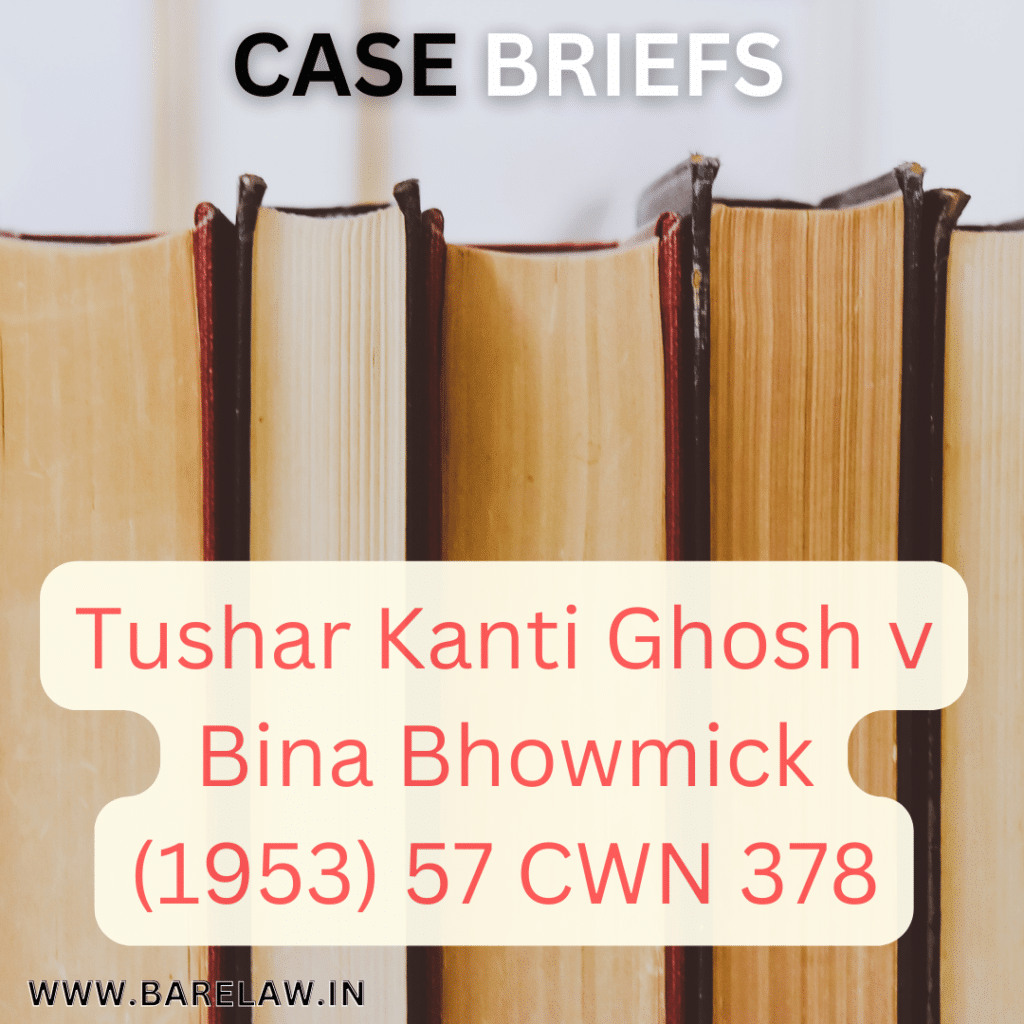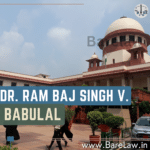
Table of Contents
Tushar Kanti Ghosh v Bina Bhowmick (1953) 57 CWN 378
In Tushar Kanti Ghosh v. Bina Bhowmick (1953) 57 CWN 378, the plaintiff, Tushar Kanti Ghosh, filed a suit for a declaration that a certain deed of gift executed by his father in favor of the defendant, Bina Bhowmick, was invalid and void.
The plaintiff claimed that his father was not of sound mind and that the defendant had exercised undue influence over him in obtaining the deed of gift. The defendant, on the other hand, contended that the deed of gift was validly executed and that the plaintiff had no right to challenge it.
The trial court dismissed the plaintiff’s suit, holding that the deed of gift was validly executed and that the plaintiff had failed to prove that his father was of unsound mind or that the defendant had exercised undue influence over him.
On appeal, the High Court of Calcutta upheld the trial court’s decision, finding that there was no evidence to suggest that the father was of unsound mind or that the defendant had exercised undue influence over him. The court also noted that the plaintiff had waited for several years before challenging the deed of gift, which further weakened his case.
Accordingly, the High Court dismissed the plaintiff’s appeal and affirmed the trial court’s decision.
CASE ANALYSIS
Tushar Kanti Ghosh v. Bina Bhowmick is a case that dealt with the validity of a deed of gift executed by the plaintiff’s father in favor of the defendant. The plaintiff challenged the validity of the deed, claiming that his father was not of sound mind and that the defendant had exercised undue influence over him in obtaining the deed.
The trial court found that the deed was validly executed and dismissed the plaintiff’s suit. The High Court of Calcutta upheld the trial court’s decision, finding that there was no evidence to support the plaintiff’s claims of unsoundness of mind or undue influence. The court also noted that the plaintiff had waited for several years before challenging the deed, which further weakened his case.
The decision in this case emphasizes the importance of proving one’s case with adequate evidence. The burden of proof lies with the plaintiff, and in this case, the plaintiff failed to provide sufficient evidence to support his claims. Additionally, the court took note of the delay in bringing the case to court, which can be interpreted as a lack of urgency on the part of the plaintiff.
This case also highlights the significance of the presumption of validity of a document. Once a document is executed, it is presumed to be valid unless there is evidence to the contrary. In this case, the courts found no evidence to challenge the validity of the deed of gift.
Overall, Tushar Kanti Ghosh v. Bina Bhowmick is an important case that underscores the need for proper evidence and timely action in legal matters. It also reinforces the principle of the presumption of validity of legal documents.





